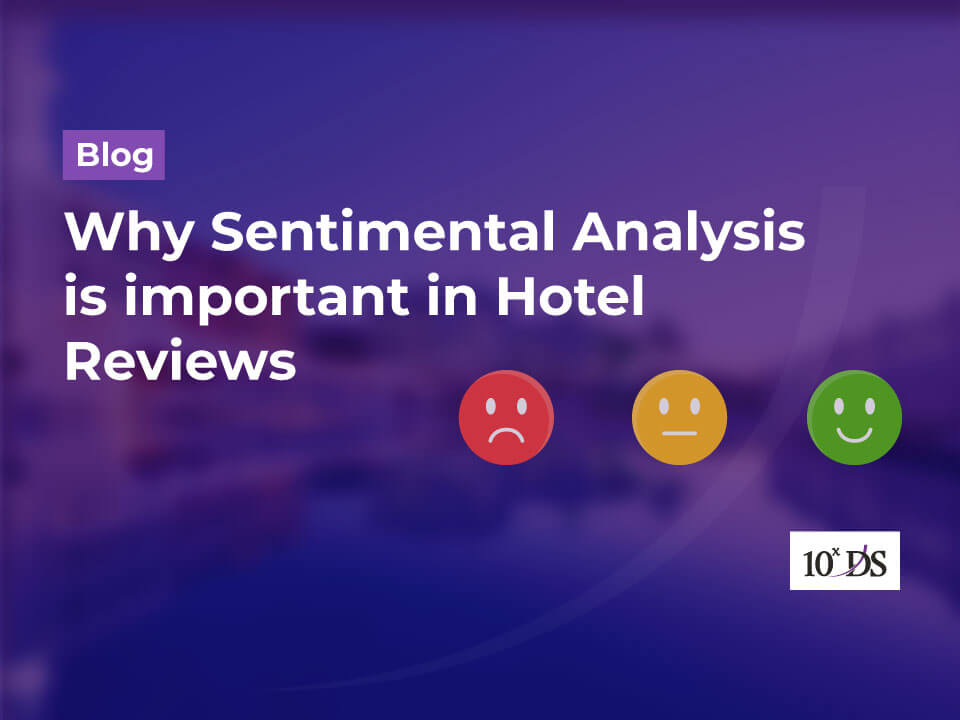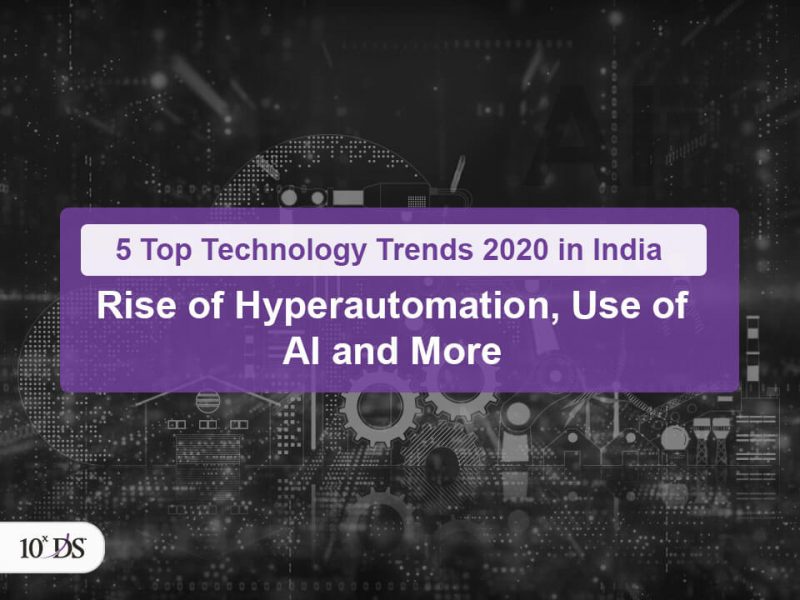
Why is Sentiment Analysis of Hotel Reviews important?
TripAdvisor suggests that 81% of people frequently or always read reviews before booking a hotel. This statistic suggests that customer reviews play an important role in the Hospitality sector. When it comes to booking a hotel, it serves as a reliable source of information about the hotel experience, for a potential customer. Sentiment Analysis (SA) of hotel reviews is gaining more importance in this context. Every review portrays certain sentiments either positive or negative which define the hotel’s reputation. The technique of capturing this polarity from a collection of reviews (dataset) applying Natural Language Processing (NLP) and Machine Learning (ML) to identify, adapt and analyse customers’ perceptions about the services describes Sentimental Analysis. This type of examination is also called Opinion Mining or Emotional AI.
Step-by-step process of Sentiment Analysis
Sentiment analysis steps are deeply intrinsic, comprising many different ML and NLP tasks and subtasks. It involves data collection, processing, analysis, and data visualization.
Preparing data for sentiment analysis is a time and labour-intensive process as well as critical. At first, real reviews left by hotel guests are gathered. To make the hidden opinions in the reviews visible to machines, words and phrases are manually assigned with sentiment labels such as positive, neutral, or negative. This data labelling is considered more reliable when more than one human judge does it. The result of the analysis process will be dependent on the quality of the data that has been gathered and how it has been labelled. Sentiment Analysis can be done in three levels – Document level, Sentence level or Aspect level based on how the labelling is done. Review Statements are then cleaned up from irrelevant data and words and made into a canonical form which makes it good to go for the evaluation process. The cleansed data is used to calculate the reputation score of the hotel, using defined metrics.
Benefits of Sentiment Analysis in hotel Industry
The prime objective of the SA for hotels is to find their real value among the customers. The resulting score of the evaluation clearly places the hotel according to its reputation. It gives an in-depth look at the current market status from a customer’s point of view.
Bulk analysis of the customer feedback highlights your most critical and appraising factors. The hidden flaws of a hotel to meet the customer expectation could be easily identified from a negative labelled review. Perhaps each such review is a learning for an emerging hotel, which helps them to take curative steps further mitigating such dissatisfaction to the guests. An example of such a customer review could be, “I hated waiting for long in the lobby for the housekeeping person to come out”. SA can identify critical issues in real-time, for example, “Is an angry customer about to churn?” or “Is that service-related crisis in social media escalating?” Another benefit of SA is that it allows discovering what a competitor in the same field is offering and what weightage would people give to them over your services. Such analysis reports could be better utilized to understand further opportunities. Thus, SA helps hotel businesses know which aspects of their service need improvements, what their brand perception is, and how they can manage their resources for better outcomes.
ML-based sentiment analysis allows the review through a heap of review data, saving time and effort and serves with accurate results. However, there are limitations too. It turns out to be an obstacle for algorithm when there is a text ambiguity where it doesn’t understand the context and subjectivity of a client interaction/ review statement. Identifying and labelling sarcasm in the reviews are also a pain for the analytical models available currently.
Technology and Approach
Among the various techniques for Sentiment Analysis, NLP is the most used in reputation management software. NLP is a field that mixes Computer Science and AI and deals with human and computer interaction. It analyses the text which defines the quality of services mentioned by the guests in reviews. Based on the nature of the word, the feedback receives its classification. The NLP-based systems have keywords programmed in them to process the reviews as positive, neutral or negative. With the use of machine learning, the database keeps on upgrading from time to time.
Among the different approaches for Sentiment Analysis like Machine Learning, Rule-based, Lexicon based, etc, the Machine Learning Approach is considered the best with regards to performance, efficiency and accuracy. It is further classified based on supervised or unsupervised learning. Different types of Analytical tools can be used in this approach. A good start can be simply playing around with a free online sentiment analysis tool. A little first-hand experience will help understand how it works. Further businesses can choose either to build their own solution or buy a tool.
Open-source libraries in languages like Python and Java are particularly well positioned to build customized Sentiment Analysis solutions because their communities lean more heavily toward data science, like NLP and Deep Learning for Sentiment Analysis. But this required resources, huge upfront investments, and time to spare.
SaaS (Software as a Service) tools offer the option to implement pre-trained Sentiment Analysis Models immediately or custom train in just a few steps. These tools are recommended if businesses don’t have a data science or engineering team on board, since they can be implemented with little or no code and can save time and money.
Conclusion
Sentiment Analysis is proving to be a valuable technology as it helps businesses process huge amounts of unstructured data in an efficient and cost-effective way. It is getting widely accepted as a method to bifurcate reviews. It’s simple to use and can be easily configured from time to time. When executed correctly, it adds value to an organization and provides facts and measurable data for future decision-making. Organizations wishing to make their product or service better, drive more sales, and outsmart their competitors should utilize sentiment analysis. Talk to our experts to know more.


